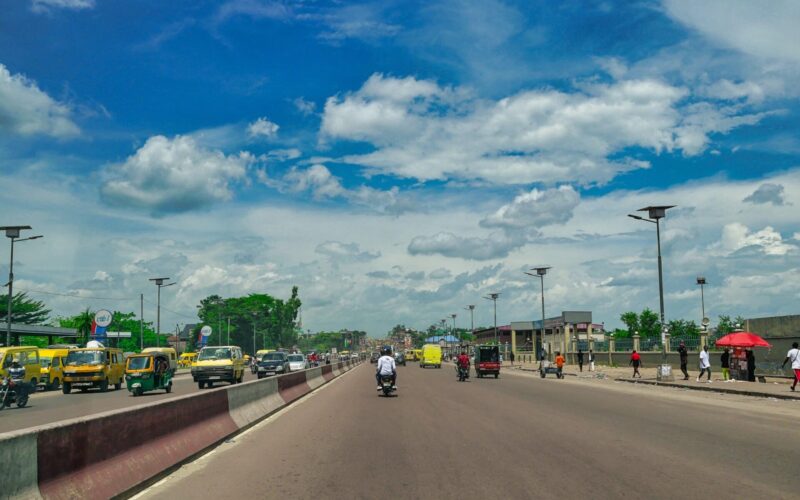Congo is located in Central Africa, and its area is about 2.3 million km, and it was called Zaire until 1997 AD, and its capital is Kinshasa, and French is the official language.
The population is 77 million, and the number of Muslims is estimated at about 10 million in 2020, with 15% of Muslims, 70% of Christians, and 15% of other beliefs.
Muslims are concentrated in the capital, Kinshasa, and in the east of the country in Kasongo and Kindu, and the regions: Maniema, Kivu, Kuma, Sikk, Masis, Makato Kasai and Lubumbashi.
Belgium occupied the Congo in 1908 AD. During the occupation, Muslims were subjected to racial discrimination; They were prevented from performing their worship, and their children were prevented from attending schools until after changing their Islamic names until independence on June 30, 1960 AD.
The Congo is one of the richest countries in Africa with mineral resources, and it has large areas of fertile agricultural land. However, the spread of corruption and civil wars that took place in the years 1998, 2006, and 2010 AD, which left more than a million people dead and displaced millions, including Muslims in the eastern regions; more than 80% of the population is poor and illiterate; The daily income of the family does not exceed two dollars in the absence of basic services such as electricity, health care and education; The education expenses for a child are more than 50 dollars, which has increased the illiteracy rate.
The situation of Muslims
Congolese Muslims suffer from extreme poverty; This made them easy prey for missionary organizations that require conversion to Christianity in order to obtain services. Organizations specialized in evangelizing Congolese Muslims, such as the “AAB” organization, which operates in Muslim-majority cities, such as: Ksingani, Kivu, and Lumumbashi, and the “Karatias” organization that specializes in evangelization Muslim children; It pays the education expenses if the child converts to Christianity, and it may provide him with opportunities for university studies outside the country, and a job inside the country.
Many Muslim families have two options; Either Christianization and education, or Islam and illiteracy, and few of them continue their education until the secondary or university level; Therefore, the number of Muslims has greatly decreased in recent decades, from 17 million to 10 million.
Muslims there do not have an influential political role; Their parties are weak, and the number of Muslim representatives in any elections since 2006 until today does not exceed 5 out of a total of 500 deputies, at a rate of 1%, and they do not have a single minister in the government.
The Congo is a secular state that does not support religious institutions; The mosques are very few and old, and the capital, Kinshasa, has only two mosques. As for the rest of the mosques, they are small chapels, and they are unable to restore their demolished mosques.
Islamic education in the Congo is found in Quranic schools attached to mosques and Islamic centers, such as: Lebomo, Pointe Noire and others. As for Islamic universities, it is few that depend on the aid of Arab countries, namely: Al-Mustafa Islamic University, the Muslim Institute, and the Islamic University of Al-Fateh in the North Kivu region.
There are Islamic institutions in the Congo that work to take care of Muslim affairs, including: the Supreme Council for Islamic Affairs, the Congolese Muslims Association, the Social Reform Center, the Congolese Muslim Youth Union, the Congolese Muslim Women’s Union, the Al-Nour Organization for Islamic Affairs, and the Charitable Association for Development and Human Development, and their efforts are very weak. Because of her weak potential and financial inability.
Muslims there suffer from many problems, the most important of which are: the missionary activity with its huge potential, the spread of ignorance of Islam due to the absence of any media or qualified preachers, and their great need for the Qur’an and Islamic books.
In addition, they do not have Sharia courts regarding personal and inheritance statuses. Therefore, sheikhs and scholars in Muslim areas resort to solving these problems away from the civil courts.
The support provided by the Sudanese Islamic Call Organization, the UAE’s Al Maktoum Foundation, Al-Azhar Al-Sharif, Saudi Arabia and Kuwait is very little and insufficient.


 WhatsApp Channel
WhatsApp Channel
 Instagram
Instagram
 Facebook
Facebook
 X (Twitter)
X (Twitter)
 Google News
Google News